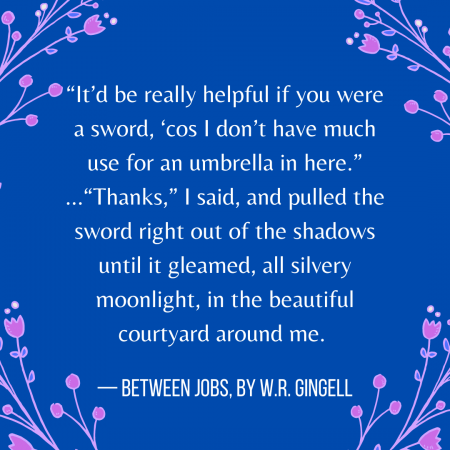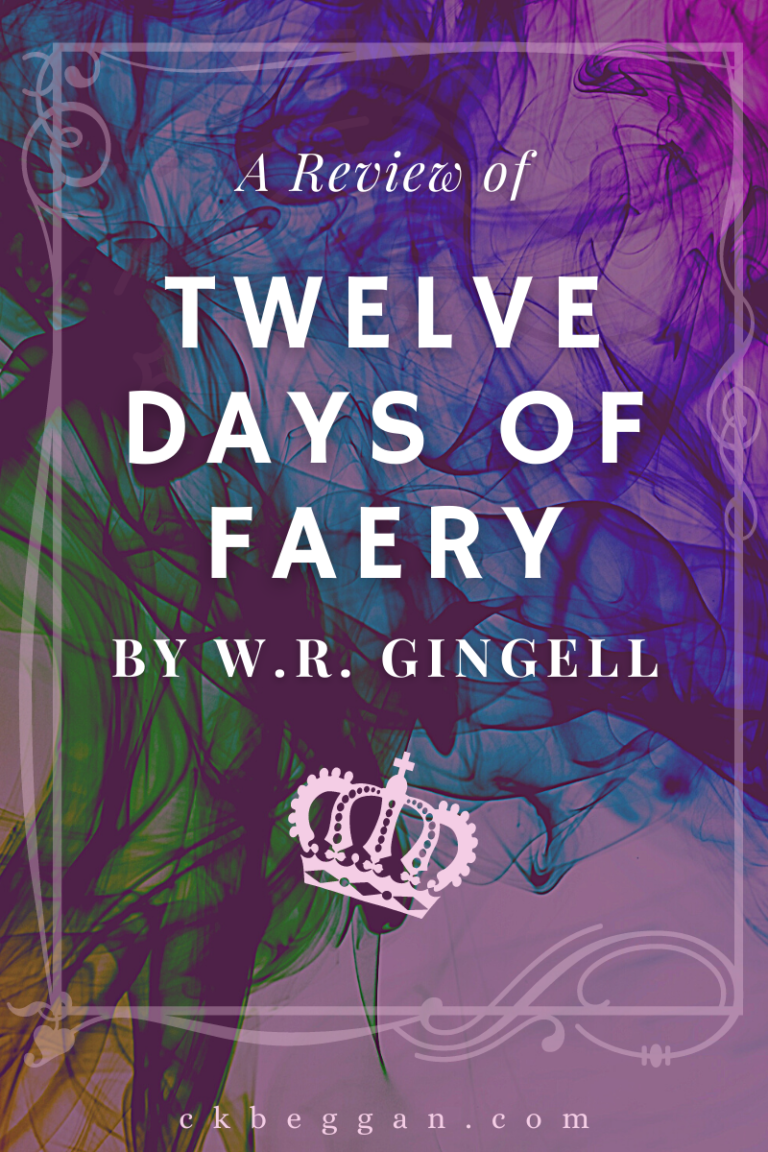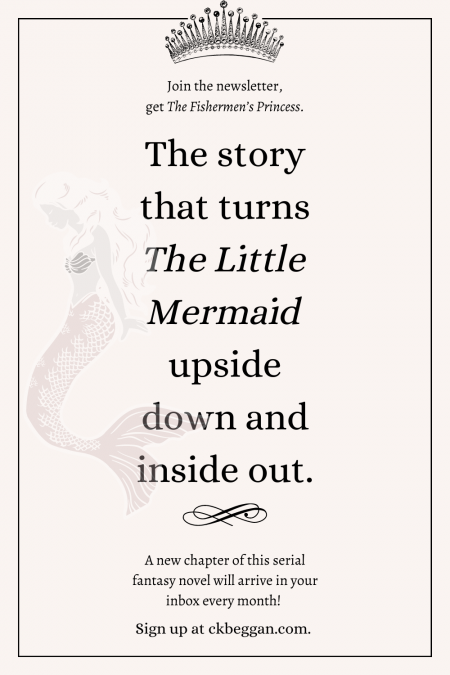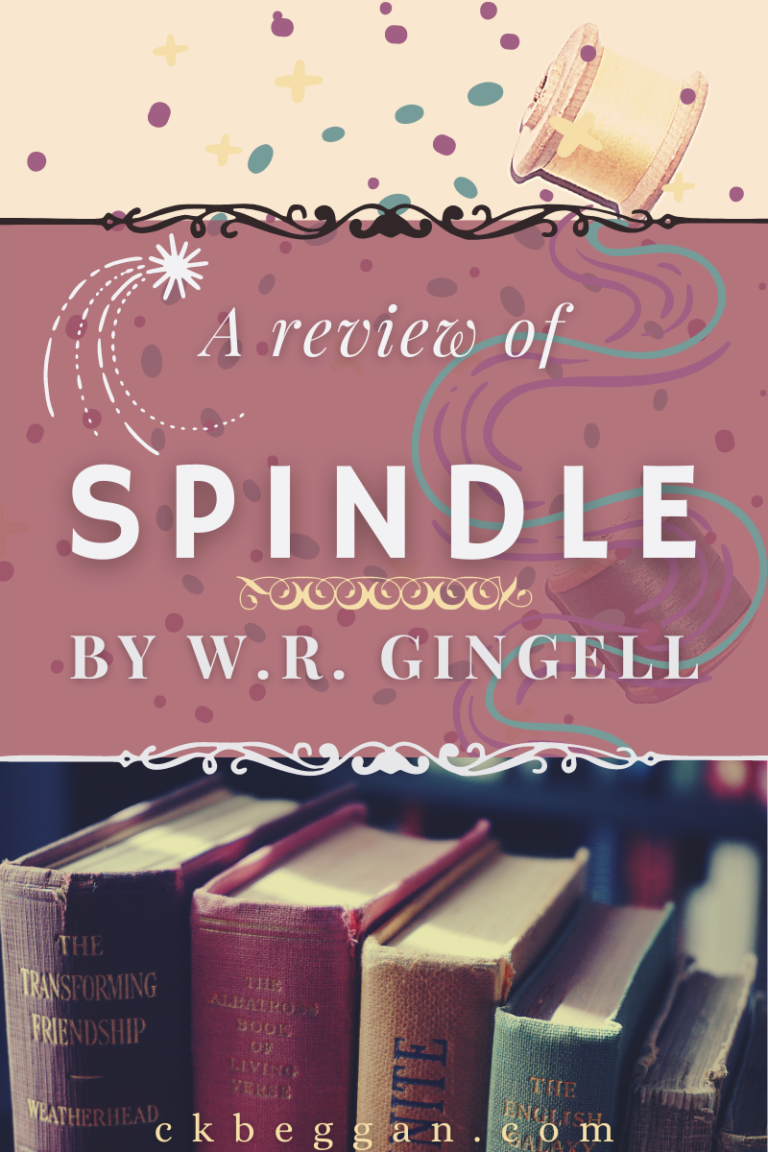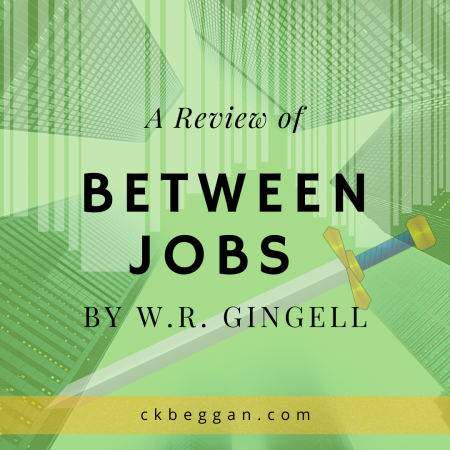
Madcap is a word often associated with Gingell‘s writing. The beloved City Between series kicks off with a new take on her unique writing style, in which the absurd is juxtaposed onto the ordinary, with extraordinary results.
The narrator of Between Jobs is known only as Pet—and that’s what she becomes for three non-humans who enter her family home. That home isn’t really hers. Pet’s parents were murdered in that house, and being underage, she couldn’t inherit. So she squats in the well-hidden room that saved her years ago, and saves money by working under the table at a local cafe. When Atelas, Zeno and Jinyeong purchase the family home, Pet—who refers to them as her “three psychos”—gets accustomed to other people being in the home again. It’s sort of comforting.
Until they find her. Set in Hobart, Australia and full of local dialect (Pet’s catchphrase is practically “Flaming heck!”), Pet gets enmeshed in the supernatural murder investigation conducted by her “three psychos.” With the promise of a little endearingly awkward romance on the horizon, Pet’s plucky outlook and enthralling world-building, the book takes readers on a sometimes violent and often hilarious adventure through Hobart Between and Hobart Behind.
The gruesome opening, in which Pet finds herself next door to another murder, was a shock after reading Gingell’s other work, and sets a darker, grittier tone. The deeper I got into Between Jobs, the more I loved it. I came very close to binge-reading with this one, and certainly lost hours of sleep. I am firmly team Jinyeong (they have to get together, right? Never mind the part about him being a vampire who will only speak Korean until he masters English) and can’t wait to continue the series. Keeping the “three psychos” as enigmatic characters is also genius; reviews of later books on Goodreads promise a serious twist.
This is an unforgettable book that’s wonderfully strange, dark and endearing all at once. I hope you’re not as behind as me on this series, but if you haven’t started yet, you should pick this one up. Immediately.
To learn more about this author, please visit her website.
